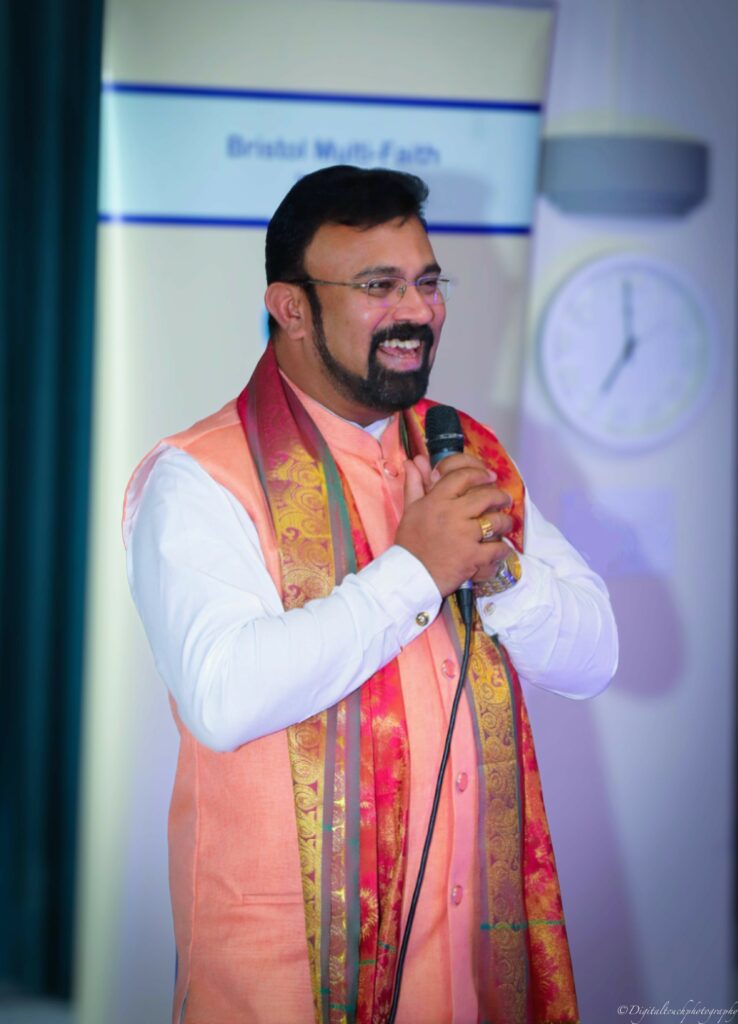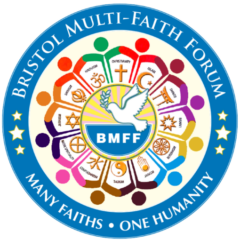Bristol has a significant population identifying as having no religion, with 51.4% stating they have no religion in the last census. This makes Bristol a city with a higher proportion of people who do not identify with a specific religion compared to the rest of the UK. Specifically, Bristol is ranked 7th in England and Wales for the proportion of people stating they have no religion.

There is a Bristol Humanists group for those who identify as atheists or humanists, offering various events and opportunities for people who do not subscribe to a religious belief.
Their details are as follows: Bristol Humanists Group, Unitarian Meeting Hall, Brunswick Square, St Paul’s, Bristol BS2 8PE. Email: bristolhumanists@gmail.com; https://www.bristolhumanists.com/
There is a Bristol Skeptics Society which promotes rationalism and critical thinking in Bristol, and hosts regular lectures and talks by academics from the world of science and skepticism, to share their unique research and insights. The goal is for every talk to delight and inspire, and help others to understand the complex world a little better. https://bristolskeptics.com/
********************
Humanism is a worldview that emphasizes human values, reason, and ethics, often rejecting supernatural or divine explanations for the world. Humanists believe in the importance of human agency, social responsibility, and the pursuit of individual happiness within this world. They often rely on science and evidence to understand the world and make ethical decisions.
Key aspects of Humanism:
- Emphasis on human well-being: Humanists believe that human flourishing is a primary goal, focusing on individual happiness, freedom, and autonomy.
- Reason and evidence: They rely on scientific inquiry and logical reasoning to understand the world and make decisions.
- Social responsibility: Humanists believe in the importance of acting ethically and compassionately towards others, contributing to a more just and equitable society.
- Non-religious: While not an exclusive definition, many humanists are non-religious and reject the need for supernatural beliefs to find meaning in life.
- Emphasis on this life: Humanists often believe that this life is the only one we have and focus on making the most of it by contributing to a better world.
Cllr Tom Aditya added that in essence, Humanism is a philosophy that encourages individuals to:
- Think for themselves and make their own choices.
- Act compassionately and responsibly towards others.
- Seek knowledge through reason and evidence.
- Find meaning and purpose in this life without relying on religious or supernatural beliefs.
*******************
Irreligion encompasses the absence or rejection of religious beliefs or practices. It’s a broad term encompassing diverse perspectives like atheism, agnosticism, religious skepticism, rationalism, secularism, and non-religious spirituality. Essentially, irreligion refers to not being religious, encompassing various levels of disbelief or indifference to religion.
Here’s a more detailed breakdown:
- Atheism: The belief that there are no gods or deities.
- Agnosticism: The view that the existence of God or a higher power is unknown or unknowable.
- Religious Skepticism: A questioning attitude towards religious claims and beliefs.
- Rationalism: A philosophical approach that emphasizes reason and logic over faith or revelation.
- Secularism: The separation of religion from government and public life.
- Non-religious spirituality: Belief in a spiritual dimension of life without adhering to a specific religious tradition.
Irreligion can range from a casual lack of religious affiliation to a more active rejection of religious beliefs. The term “irreligious” is often used in surveys to identify individuals who do not identify with any religion or do not participate in religious practices. It’s important to note that irreligion doesn’t necessarily imply hostility towards religion; it can also be a state of indifference or simply a lack of religious affiliation.
**************
A freethinker is someone who forms their own opinions and beliefs independently of authority, tradition, or dogma. They rely on reason, logic, and empirical evidence rather than blindly accepting established beliefs or authority. Freethinkers are often associated with atheism, agnosticism, and rationalism.
Here’s a more detailed breakdown:
- Independently Formed Opinions: Freethinkers are not defined by a specific religion or ideology; they are characterized by their ability to form their own opinions and beliefs.
- Reason and Logic: They rely on reason and logic to arrive at conclusions rather than accepting beliefs based on faith or authority.
- Questioning Established Beliefs: Freethinkers often question established beliefs and are willing to challenge conventional wisdom.
- Emphasis on Evidence: They prioritize evidence-based thinking and may be skeptical of claims that lack empirical support.
- Diversity of Views: Freethinkers can hold a variety of beliefs, including atheism, agnosticism, and rationalism.
****************
Rationalism, in essence, is a philosophical perspective that emphasizes reason as the primary source of knowledge. It suggests that certain truths about the world, especially in areas like mathematics and logic, can be discovered through the power of reasoning and intuition, independent of sensory experience.
Here’s a more detailed breakdown:
- Reason as the Primary Source:Rationalists believe that reason, or the capacity to think logically and systematically, is the most reliable way to acquire knowledge. They prioritize the ability to deduce conclusions from fundamental principles and to grasp truths directly through intuition.
- Innate Ideas:Some rationalists propose the existence of innate ideas, or concepts that are present at birth and not derived from experience. These ideas, like the concept of infinity or the principle of contradiction, are believed to be fundamental to our understanding of the world.
- Contrast with Empiricism:Rationalism often stands in contrast to empiricism, which argues that all knowledge ultimately derives from sensory experience. Rationalists challenge the view that experience is the only source of knowledge, suggesting that reason can lead to knowledge independent of the senses.
- Examples:Prominent rationalists include René Descartes, Gottfried Wilhelm Leibniz, and Baruch Spinoza. Their philosophies emphasize the power of reason to uncover fundamental truths about existence, knowledge, and the nature of reality.
- Emphasis on Logic and Deduction:Rationalists are known for their emphasis on logical reasoning and deductive arguments. They believe that by starting with self-evident truths (axioms) and applying logic, one can arrive at valid conclusions about a wide range of topics
****************
Atheism is a rejection of the belief that no deities exist. It’s a position that can be based on various reasons, including a lack of evidence for the existence of God or gods, or a belief that such concepts are meaningless or man-made constructs.
An atheist is someone who does not believe in any god or gods, or who believes that no god or gods exist. They may reject the existence of deities, or they may simply not believe in them.
While atheists may not believe in religious teachings, they can still be quite informed about religion. Not all non-religious people are atheists, but many who do not believe in gods identify as such.
There are different ways to classify atheism, such as ontological atheism, which is a firm denial of a creator or manager of the universe, or existential atheism, which asserts that even if a God exists, they have no authority over one’s life.
Atheism is a spectrum of beliefs and practices, and not all atheists share the same views or motivations.
************************
Secularism is a political philosophy advocating the separation of religion and government, ensuring equal treatment and rights for all citizens regardless of their beliefs. It aims to create a society where religious and non-religious individuals can coexist without discrimination.
Here’s a more detailed look at secularism:
Key Principles:
- Separation of Church and State: Secularism advocates that religious institutions should not be involved in the government’s affairs, and vice versa.
- Freedom of Religion and Conscience: Individuals should have the freedom to choose their beliefs or lack thereof without coercion or discrimination.
- Equality: Religious beliefs should not grant any individual or group special privileges or advantages.
- Neutrality: The state should be neutral in matters of religion and should not favor or disfavor any particular religious belief or group.
In Practice:
- Secularism seeks to ensure that public life, including education and government institutions, is not influenced by religious dogma.
- It protects the rights of religious minorities and non-believers from discrimination and persecution.
- Secularism can take different forms depending on the cultural and historical context of a country.
Secularism vs. Secularization:
- Secularism is a political philosophy advocating the separation of religion and state.
- Secularization refers to the historical process of societies becoming less religious and more secular in their thinking and practices.
In Conclusion, Cllr Tom Aditya added that Secularism is a crucial principle for ensuring a fair and inclusive society where all individuals are treated with respect and dignity, regardless of their beliefs. It promotes freedom of conscience, equal rights, and a separation of religion and state.
